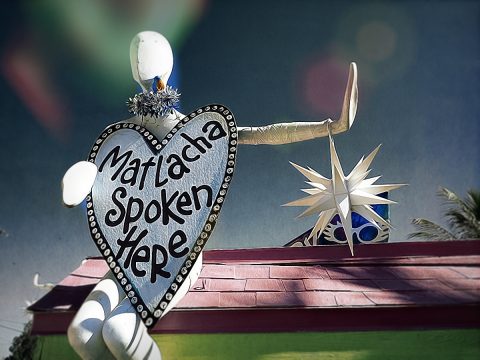The one thing that really hits me in the gut when I read your story the first time is this narrator’s need for love in a clinical place and existence. The narrator’s desperation is palpable: She/he connects love somehow with having a soul. And then you throw in biology. Was there any event or something in your own life that sparked this intermingling? Are you a scientist? A dabbler?
Not a scientist! I did start as a biology undergrad in college, though, so I’ve cut open my fair share of dead things. A cockroach, a cow heart, a human. Studying biology brought me into contact with a lot of captivating images and ideas that stuck with me. Dissection and how casually we dissected (and vivisected some poor caterpillars), in particular.
For as long as I can remember, I’ve had this desperate urge to figure it out, that there’s some intricate, little fact about life I’m not getting, but I’m oh so close. I tried to be a biologist, in part, for the same reason I try to write stories. It’s my way of attempting to figure it out. Still, as the story suggests, we’re only people. Our understanding always falls short. These ideas intersected and hit home even harder at the end of a relationship. I spent a year trying to figure it out, dissecting the dead relationship over and over, of course always falling short. Eventually, I had to give up on this person like a curve that stops trying to reach its asymptote. We’re only people.
While I read your story, I love that I want to believe that invertebrates have souls. (I love the pun of spineless creatures not having souls, by the way!) Do you believe we have souls? Is spirituality a theme in some or in all of your writing?
No, not really. I hope I’m wrong, but I tend to think that when my body dies, anything that made me me will be gone. There is a sort of magic in being human, though. Especially, there’s a sort of magic when people interact, even in the smallest, most invisible ways. I just believe it dies with our bodies.
In writing, I often use the idea of a spirit or God as a stand-in for other concepts: the internal, mental conversations we make up with other people, our longing, our fear of authority, etc. In a lot of my stuff, the word God or the presence of a spirit is interchangeable with different interactions between people or different emotions.
Now, about that capitalization of the “Head Scientist”—you make it a proper noun. Hmm, is she God? Please talk to me about this ominous, red fingernailed authority figure: “The Head Scientist tells me I got an F, even though this wasn’t a class and nobody else got a grade.” What does her dismissal of lesser species say about science and/or religion?
The Head Scientist is definitely an authority figure, whether the reader interprets her as the embodiment of science or God or both. She’s unrealistic because she’s this all-knowing character who figured it out, who knows and conceals all the answers my narrator so desperately wants. The Head Scientist can pass judgment where there’s no judgment to be had, can quantify love, which isn’t quantifiable. So she is very God-like. My narrator fails time and time again because she’s a normal person, not about to pull life’s answers from a sliced-up guinea pig like her foil.
You employ a couple neat tricks. Of course, this story is a construction of words, so the nomenclature references are very meta: “I call you and say I’m going to name an animal after you.” The time here feels fluid, too, with the white space and the sense she is stuck in the past. Would you like to speak to either of these—your metaphors or use of time?
Use of time is something I like to fiddle with. Externally, time passes in chronological order, but our mental space doesn’t necessarily move in the same direction. One minute I’ll be daydreaming about the future, the next I’ll be imagining a detailed conversation with someone I met years ago. In my story, the laboratory is a similar space where time doesn’t move in a precise order. That kind of opens up how I can observe a relationship through writing. When there’s no specific order, I can look at a relationship from all angles—start to finish—at once.
For some reason, after reading your work, I found myself pulling Anthony Doerr’s collection, The Shell Collector, from my shelf. Is there any writer who influenced you who grapples with spiritual/religious/scientific themes?
On concepts of God, Walking to Martha’s Vineyard by Franz Wright.
When I was writing this story, if I remember correctly, I was reading Aimee Bender. The Girl in the Flammable Skirt and Willful Creatures, one right after the other. Her stories don’t necessarily speak to those themes directly. However, I was inspired by her strange imagery and characters. Each character has his or her own, specialized loneliness, yet all are very relatable. It’s pretty neat.



 The SmokeLong Grand Micro Contest (The Mikey) is now an annual competition celebrating and compensating the best micro fiction and nonfiction online.
The SmokeLong Grand Micro Contest (The Mikey) is now an annual competition celebrating and compensating the best micro fiction and nonfiction online.